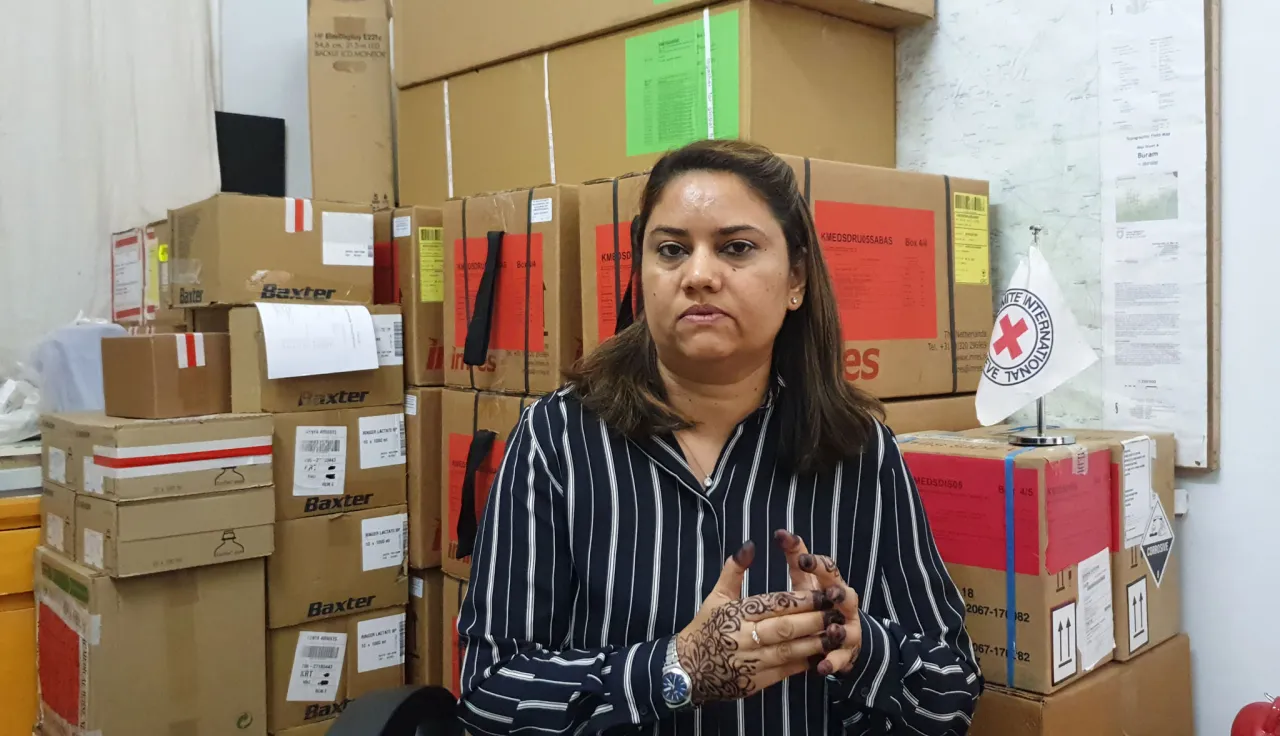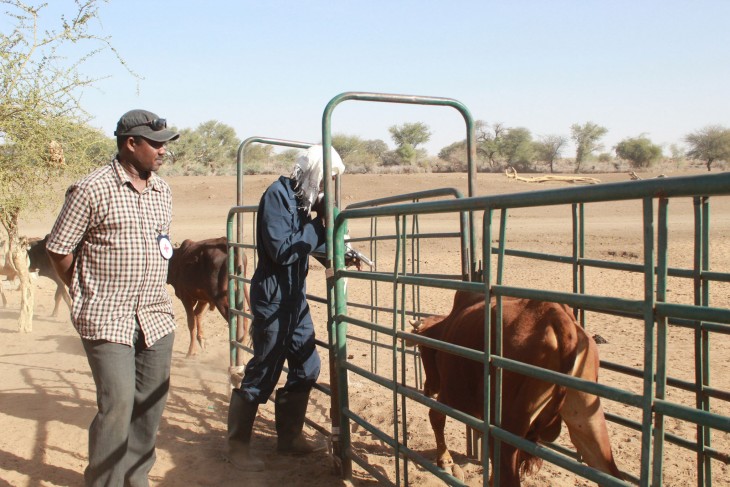How does logistics support work in Sudan?

An interview with Shazia Nawaz, head of logistics in Khartoum
The logistics division provides professional support for the ICRC's diverse and complex activities, developing timely, cost-efficient and specifically tailored supply chain management solutions while ensuring quality, compliance and accountability and maintaining high ethical standards. The ICRC's head of logistics in the Khartoum delegation, Shazia Nawaz, spoke about the logistics support for our operations in Sudan.
What is logistics?
Logistics is the act and process of proactively preparing and acquiring items and delivering at the right time at the designated points of need. In the ICRC, being a humanitarian organization, our logistics service puts those whom we intend to serve at the top of our action.
In our Sudan delegation, the logistics department has 35 professionals across key operational locations in Al Geneina, Nyala and Zalengei. We have a regional warehouse in Al Fashir and our main warehouse is in Khartoum.
How was the ICRC able to provide for the medical needs of hospitals during the Khartoum protests despite the volatile security situation?
Our staff were wonderful and always managed to come to work, despite the restrictions and security concerns.
We were able to provide medical items to hospitals during the demonstrations in Khartoum because we had anticipated that the security situation might impede movement and we, therefore, brought some of these items to our delegation. Our drivers were placed on standby as well for any eventuality. It turned out that Sudan Red Cross Society (SRCS) was able to come to our delegation to pick up items designated for their use. Those hospitals that could not come and were located close to Bari picked up their own items from there since our warehouse is in the area.
Our staff was wonderful and always managed to come to work, despite the restrictions and security concerns. They exhibited the true spirit of humanitarianism.
What role did the logistics department play during the seeds and tools distribution to 138,000 people in Darfur?
We began preparing for this big task in November 2018. We had to gain a good knowledge of the market and of the suppliers through a market assessment that we undertook. We had in fact visited the suppliers in December 2018. We checked for good products and secured the services of inspection companies to evaluate the quality of the food items we needed to source. We then launched the tendering process which took two weeks and as our plans proceeded, they were threatened by several unanticipated challenges. One of them was the fuel shortage in the country, which was worse in Darfur where the distributions were to take place.

Bags containing food, seeds and tools in Jebel Marra, Darfur are offloaded before being distributed. CC BY-NC-ND / ICRC / Shiemaa Ahmed
We also faced the challenge of obtaining the required permits on time before supplying the items to the field. The economic situation in Sudan was also an issue as it negatively impacted the mode of payment to the suppliers, creating some delays. Nonetheless, we were able to meet both the deadline we had set and the expectation of our colleagues who were to carry out the distribution. I should mention that even though some of the distribution windows were in the Ramadan period, our staff graciously worked throughout the fasting period.
What can you say about the logistics support for the acquisition, storage and distribution of vaccines for the on-going vaccination of an estimated 800,000 animals?
We actually bought the vaccines from the state ministry but imported a few ice packs from Kenya. We designated and used Al Fashir as our main storage/distribution hub since it was central from the point of view of all the other areas where the vaccination would be conducted.

The ICRC and Ministry of Animal Resources veterinarians vaccinate cattle during the animal vaccination campaign in Wadaa, North Darfur. CC BY-NC-ND / ICRC / Shiemaa Ahmed
To maintain the integrity of the vaccines, we bought generators in the field for each of the storage units. In short, our field inventory for the vaccination campaign were vaccines, cold boxes, ice packs and portable generators. Refrigerated containers were used to transport the drugs from Khartoum to our offices in Darfur. I should mention that even drugs needed to be put in the cold boxes too, so we prepared well ahead of the commencement of the vaccination campaign which is still underway.



